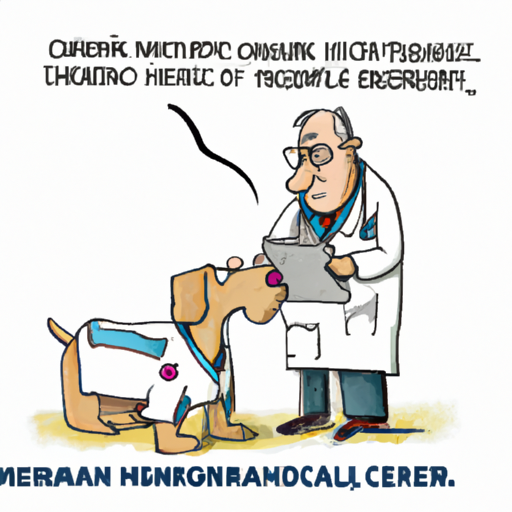1. Understanding Hemorrhoids in Dogs
Dear caregiver, you might be wondering if dogs can get hemorrhoids just like humans. The answer is yes, although it’s much rarer in dogs than in humans. Hemorrhoids in dogs are swollen blood vessels in the rectal area which can cause discomfort, irritation, and sometimes bleeding. Imagine your dog in the same discomfort you would feel – quite an unsettling thought, isn’t it?
2. Recognizing the Symptoms
To effectively care for your canine companion, you must recognize the signs. The symptoms of hemorrhoids in dogs are similar to those in humans, which include:
- • Straining during bowel movements
- • Bloody stool
- • Excessive licking around the rectal area
- • Visible swollen area around the anus
It’s like a silent cry for help from your furry friend. Your prompt attention can surely make a difference.
3. Causes of Hemorrhoids in Dogs
The causes of hemorrhoids in dogs are not entirely known. However, some common factors are:
- • Straining due to constipation
- • Obesity
- • Lack of exercise
- • Poor diet
Think of it as a chain of events – each linked to the other, contributing to the overall discomfort of your pet.
4. Treatment Options
Once you have identified the symptoms, you can explore various treatment options. Here’s a table to help you understand the different treatments:
| Treatment | Description |
|---|---|
| Dietary changes | Increase in dietary fiber to help soften the stool and reduce straining. |
| Weight management | Regular exercise and a balanced diet to help your dog maintain a healthy weight. |
| Medication | Topical creams or ointments to soothe the inflamed area. |
| Surgery | In severe cases, surgery may be necessary. |
Remember, it’s not just about treating the symptoms but also addressing the root cause to ensure a happy and healthy life for your pet.
5. Preventive Measures
Prevention, as they say, is better than cure. Here are some preventive measures:
- Ensure a balanced diet rich in fiber for your pet.
- Regular exercise helps in digestion and maintaining a healthy weight.
- Regular vet check-ups to catch any potential issues early.
Think of these preventive measures as small steps towards a big goal – your dog’s overall well-being.
FAQ
Q1: Can dogs get human hemorrhoid creams?
A: No, they can be toxic to dogs. Always consult a vet before using any medication.
Q2: Can hemorrhoids in dogs heal on their own?
A: In some minor cases, yes. However, it’s always best to consult a vet for proper diagnosis and treatment.
Q3: Can a change in diet prevent hemorrhoids?
A: Yes, a diet rich in fiber can help prevent constipation and subsequently, hemorrhoids.
Remember, your dog’s health and happiness lie in your hands. Your attention and care can make all the difference.



